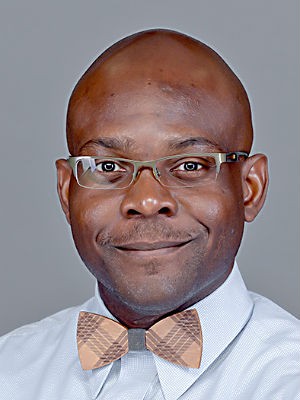To champion sexuality and gender inclusion while denying respectful disagreement reeks of hypocrisy.
Take the recent case of National Hockey League player Ivan Provorov, a defenseman for the Philadelphia Flyers. For their Jan. 17 game against the Anaheim Ducks, the Flyers collaborated with You Can Play, an NHL partner organization, for Pride Night. As a member of the Russian Orthodox Church, Provorov politely opted out of the pregame skate that called for either wearing a Pride Night warmup jersey or using a stick wrapped in rainbow tape.

James Ellis III
He made this decision in an effort merely “to stay true to myself and my religion,” he explained. He played in the game, which the Flyers won, and that should have been the end of it.
But it wasn’t.
Instead, Provorov was criticized by You Can Play officials and even some of his teammates who patronizingly inferred the core problem might be that he lacked proximity to someone who’s “out.” They went on to suggest that with education and exposure he might then be able to think or behave differently, in ways that affirmed Pride sensibilities.
Appalling as this response is, it is a common move by people who claim to be about honoring diversity but actually are not.
“It is a common move by people who claim to be about honoring diversity but actually are not.”
Provorov affirming his religious convictions in the manner he did was a big missed opportunity for the NHL, Philadelphia Flyers, You Can Play and others to highlight the very inclusion they allege is so important. Instead, however, they did the exact opposite.
As reported by ESPN, You Can Play’s chief operating officer, Kurt Weaver, commented: “Players who do this sort of thing have a very short perspective on what it means. For me, religion is about charity and inclusion. This wasn’t just about a player and a jersey on a patch of ice. What else was affected by this? … If you embrace the LGBTQ community, it will embrace you back.”
Weaver added: “We’re going to have individuals that don’t want to hop onboard the team. That’s unfortunate.”

Ivan Provorov #9 (L) with Cam York #45 of the Philadelphia Flyers (Photo by Tim Nwachukwu/Getty Images)
Yet the reality is that Provorov did not hurl slurs toward the LGBTQ community or say anything remotely demeaning. He simply held to the conviction of his conscience and did so as respectfully as possible, only to be painted as an out-of-touch neanderthal whose religion’s software needs updating.
Provorov’s dilemma is not isolated. It is acted out daily in virtually every profession and corner of life in America.
What those who champion inclusion in this way fail to see is that their forced inclusion happens only to the exclusion of anyone who dares to disagree with any angle of LGBTQ life. This then only weakens their claims and triggers further animosity and intoleranece toward an already volatile issue.
True inclusion says the voices of vegans and meat eaters both matter. It says a recent parolee, someone for whom English is not their mother tongue, and a used car salesman all deserve a seat at the table with a perspective that holds value.
“Inclusion that fails to meet the burden of proof of its own definition is fraudulent and has the potential to spark hate.”
Unfortunately, the beauty of appreciating one another while confidently agreeing to disagree is becoming a tragedy. Inclusion that fails to meet the burden of proof of its own definition is fraudulent and has the potential to spark hate.
In America, a smorgasbord of opinions exists on any topic. That is part of what makes us who we are. But we cannot push for antibullying policies in schools while as adults we act like “toddlers with long legs” and are guilty of the same misbehavior.
History continues proving how obviously far from perfect we are at this, but one beauty of our country is the legal pledge that all men are created equal, with “certain unalienable rights” and “among these are life, liberty and the pursuit of happiness.” This means even the individual who views race, gender, religion or politics a world apart from how I do is welcome to live on my cul-de-sac. Obviously, they cannot harass or assault me or else violate my civil liberties, but they are under no compulsion to have me over for dinner, help shovel my driveway during a bad snowstorm or to look out for the unclaimed Amazon packages accumulating on my front porch.
To be inclusive means all are welcome, not only those with an asterisk by their name that is undergirded by a rubric only I define. If the price of admission to belonging to the “cool club” is marching lockstep to every point or belief, that is fine but it is cult-like and has diddly-squat to do with inclusion.
Therefore, with all due respect, I suggest that whoever within the LGBTQ community has been pushing for a fraudulent, cloistered kind of inclusion use an altogether different term that correctly reflects their exact intentions or, on the other hand, begin holding themselves accountable to practice what they preach.
To be clear, I do not believe a utopia will be experienced on this side of heaven. I do believe, however, that unity without conformity is possible, insomuch as we can appropriately contextualize and distinguish how that might take shape in private versus public dealings.
It only tosses gasoline on the charity that is possible amid difference if we let our feelings lead the way in decision-making because ultimately emotions by their very nature are fleeting and deceitful. A saying from another generation that is helpful is that “when the plain sense makes good sense, don’t look for another sense.” Our society is desperate for more reasonable adults to demonstrate how to play together well in life’s sandbox.
James Ellis III is an ordained Baptist pastor. He holds a doctorate from Western Theological Seminary, master’s degrees from Pittsburgh Theological Seminary and Baylor University’s George W. Truett Theological Seminary, and a bachelor’s degree in African American studies from the University of Maryland. His latest book is An Inward-Outward Witness: Suffering’s Role in Forming Faithful Preachers. Learn more at his website.
Related articles:
Brian Flores, the Rooney Rule and some lessons for churches seeking diversity | Opinion by Maina Mwaura and Christopher Harris


